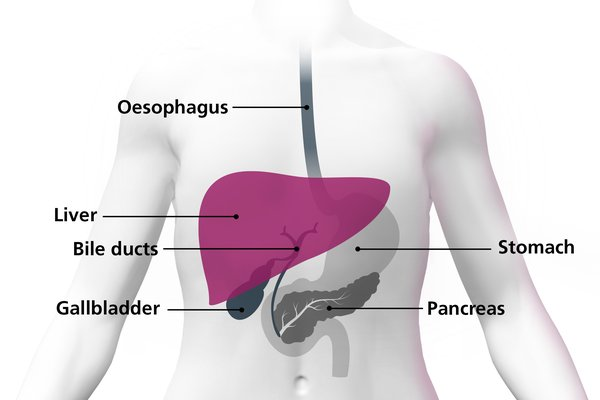Search This Blog
We are attempting to raise awareness about various medical value travel options in order for everyone to receive inexpensive medical care on time.
Featured
- Get link
- X
- Other Apps
Top ten signs and symptoms of liver cancer !!
Liver cancer is a serious condition that can be life-threatening if not detected and treated early. The liver is an essential organ responsible for filtering toxins from the body and helping with digestion. Unfortunately, liver cancer can be difficult to diagnose because early symptoms are often subtle or nonexistent. As the cancer progresses, symptoms become more apparent. In this article, we will discuss the top five symptoms of liver cancer that you should be aware of.

- Abdominal pain and swelling
Abdominal pain is a common symptom of liver cancer. The pain is usually felt in the upper right side of the abdomen and can be a dull ache or a sharp pain. The pain may also be accompanied by swelling or a feeling of fullness in the abdomen. This is because the liver can become enlarged as the cancer grows, causing it to press against other organs in the abdomen.
- Jaundice
Jaundice is a condition in which the skin and whites of the eyes turn yellow. This is caused by a buildup of bilirubin in the body, which is a waste product produced by the liver. When the liver is not functioning properly, bilirubin can build up in the blood, leading to jaundice. Jaundice is a common symptom of liver cancer and may be accompanied by other symptoms such as dark urine, pale stools, and itching.
- Loss of appetite and weight loss
Liver cancer can cause a loss of appetite and unintentional weight loss. This is because the cancer can interfere with the liver's ability to digest food and absorb nutrients. In addition, the cancer can cause a buildup of toxins in the body, leading to a decrease in appetite.
- Fatigue and weakness
Fatigue and weakness are common symptoms of liver cancer. This is because the cancer can cause a buildup of toxins in the body, leading to fatigue and weakness. In addition, the cancer can cause anemia, a condition in which the body does not have enough red blood cells to carry oxygen to the body's tissues. Anemia can cause fatigue and weakness.
- Nausea and vomiting
Liver cancer can cause nausea and vomiting. This is because the cancer can interfere with the liver's ability to break down toxins in the body. As a result, toxins can build up in the blood, leading to nausea and vomiting. In addition, liver cancer can cause a buildup of fluid in the abdomen, leading to feelings of nausea and discomfort.
- Fever
Liver cancer can cause a fever, which is usually low-grade. The fever may come and go and is often accompanied by other symptoms such as fatigue and weakness.
- Enlarged liver or spleen
As liver cancer progresses, the liver may become enlarged, which can be detected by a doctor during a physical exam. The spleen, which is located next to the liver, may also become enlarged.
- Blood clotting problems
The liver produces proteins that help with blood clotting. When the liver is not functioning properly due to cancer, blood clotting problems can occur. This can cause symptoms such as easy bruising, bleeding gums, and prolonged bleeding from cuts.
- Confusion or disorientation
Liver cancer can cause a buildup of toxins in the blood, which can affect brain function. This can lead to confusion, disorientation, and other cognitive problems.
- Bone pain
Liver cancer can sometimes spread to the bones, causing bone pain. This is usually felt in the back or ribs and can be a dull ache or a sharp pain.
It is important to note that not everyone with liver cancer will experience all of these symptoms, and some people may not have any symptoms at all. This is why regular screening for liver cancer is important for people who are at risk for the disease.
Risk factors for liver cancer include:
- Chronic hepatitis B or C infection
- Heavy alcohol use
- Non-alcoholic fatty liver disease (NAFLD)
- Cirrhosis
- Diabetes
- Obesity
- Exposure to aflatoxins (toxins produced by certain types of mold)
If you have any of the risk factors for liver cancer, it is important to talk to your doctor about getting screened for the disease. Screening for liver cancer usually involves a blood test and imaging tests such as ultrasound, CT scan, or MRI.
In conclusion, liver cancer is a serious condition that can be difficult to detect in its early stages. If you are experiencing any of the symptoms mentioned in this article or have any of the risk factors for the disease, it is important to see a doctor as soon as possible. Early detection and treatment can improve your chances of a successful recovery. In addition, taking steps to reduce your risk of liver cancer such as getting vaccinated for hepatitis B, avoiding heavy alcohol use, and maintaining a healthy weight can help to protect your liver and overall health.
too read moreé: Medical journals
- Get link
- X
- Other Apps
RECENT READS

Managing Diarrhea Post-Kidney Transplant: Effective Treatment
- Get link
- X
- Other Apps

Revolutionizing Eye Care: Shinon Global's Impact on Cornea Transplantation Worldwide
- Get link
- X
- Other Apps
Comments
Post a Comment